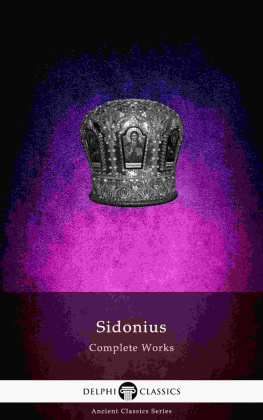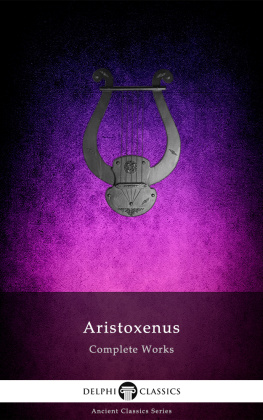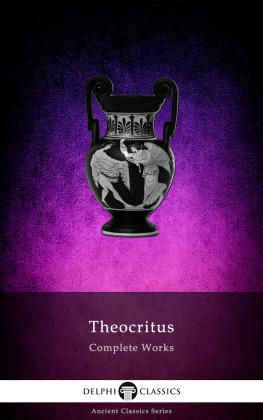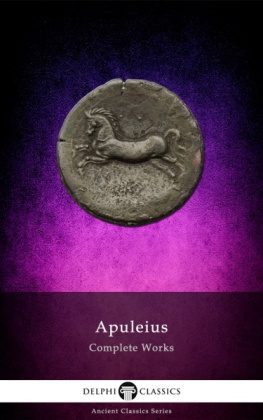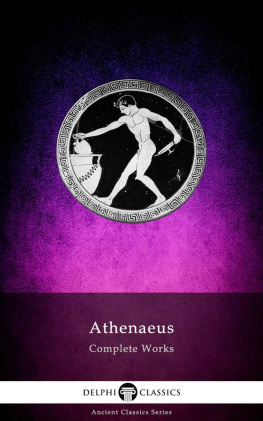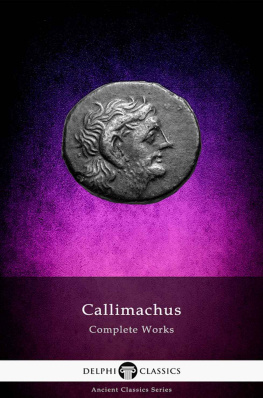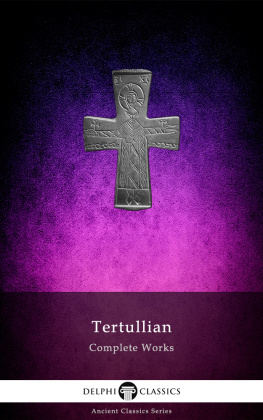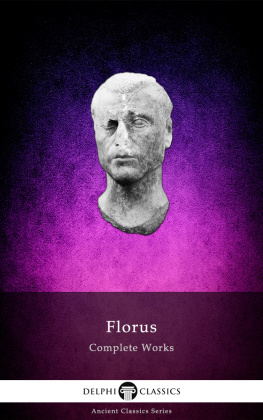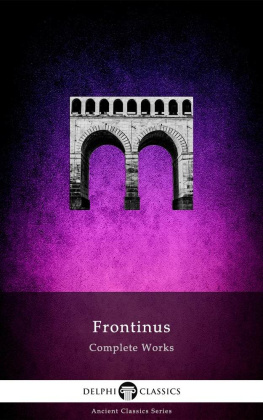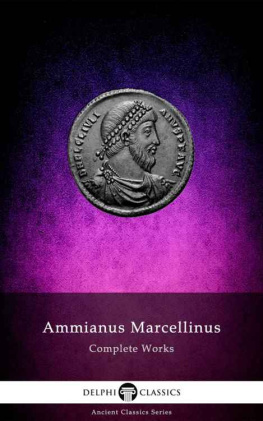The Complete Works of
SIDONIUS
(c.430-489 AD)

Contents

Delphi Classics 2017
Version 1

The Complete Works of
SIDONIUS APOLLINARIS

By Delphi Classics, 2017
COPYRIGHT
Complete Works of Sidonius Apollinaris
First published in the United Kingdom in 2017 by Delphi Classics.
Delphi Classics, 2017.
All rights reserved. No part of this publication may be reproduced, stored in a retrieval system, or transmitted, in any form or by any means, without the prior permission in writing of the publisher, nor be otherwise circulated in any form other than that in which it is published.
ISBN: 978 1 78656 383 5
Delphi Classics
is an imprint of
Delphi Publishing Ltd
Hastings, East Sussex
United Kingdom
Contact: sales@delphiclassics.com
www.delphiclassics.com
The Translations

Lyon (ancient Lugdunum), a city in east-central France Sidonius birthplace. His father Apollinaris was the Prefect of Gaul under Valentinian III.

The Ancient Theatre of Fourvire, Lyon
POEMS

Translated by W. B. Anderson
The poet, diplomat and bishop, Gaius Sollius Modestus Apollinaris Sidonius, better known as Saint Sidonius Apollinaris (c. 430-489 AD), was born in Lugdunum (Lyon). There are only two extant works by Sidonius: his poetry and nine books of letters. The poems are written in the form of panegyrics, concerning different emperors (largely drawing upon the models of Statius, Ausonius and Claudian) and detailing several important political events. Of particular note is Carmen 7, which is a panegyric written to his father-in-law Avitus on his inauguration as emperor. Carmen 2 is a panegyric to the emperor Anthemius, revealing Sidonius efforts to be appointed Urban Prefect of Rome. As well as three long panegyrics, there are shorter poems addressed to or concerned with friends, apparently written in Sidonius youth.

Tremissis of Emperor Anthemius (c. 420-472), who was Western Roman Emperor from 467 to 472. He is regarded as one of the last capable Western Roman Emperors.
CONTENTS

A coin of Majorian (c. 420-461), who was the Western Roman Emperor from 457 to 461. A prominent general of the Late Roman army, Majorian deposed Emperor Avitus in 457 and was one of the last emperors to make a concerted effort to restore the Western Roman Empire.
I. PREFACE TO THE PANEGYRIC IN HONOUR OF THE EMPEROR ANTHEMIUS, CONSUL FOR THE SECOND TIME
WHEN nature established the young Jupiter above the stars and the new god was entering upon an ancient sovereignty, all the deities vied in paying worship to their deity, and uttered in diverse measures the same bravo. Mars with trumpets blare acclaimed his sire and with thunderous din praised the thunderbolts. The Arcadian and the Archer God sounded the clanging strings, the one more skilled to strike the zither, the other the lyre. Castalias maiden band gave forth their plaudits in varied strains with songs, reeds, thumb, voice and foot. But after the denizens of heaven, tis said, the god brooked even the inferior chants of demigods; then Dryads in union with Fauns, Mimallones with Satyrs, a rustic multitude, poured forth a sprightly song. The Pans that sound the hemlock-reed left high Maenalus, and after the lyre the hoarse pipe pleased Joves ears. Amid this throng Chiron, dancing to the sounding quill, moved his ungainly horse-limbs elegantly, and that beast-man earned a hearing and found grace even though he neighed in the midst of his singing.
So tongues rich and poor made an acceptable offering, and the greatest tribute in that days sacrifice was song. In like manner, O Caesar, chiefest hope of our time, I come after great lords and offer thee humble incense, boldly singing my lay in presence of the learned Victor, who is wont to speak either with the voice of Phoebus or with thine, and who, though he is quaestor in thine everlasting court, shall everlastingly be my master. So, my prince, let offering of diverse utterance pay worship to thee; for thou makest our hearts new temples for thy habitation.
II. PANEGYRIC
RAISE up, Augustus, thy second fasces, seconded by Fortune; gleaming with mass of gold upon thy robe do thou, an old consul, begin the new year, and deem it no disgrace to grace the roll of office twice with thy name. Although thou walkest with a diadem surmounting thy hair and thy shoulders are covered by a Tyrian mantle after the fashion of thy predecessors, yet may the bright purple of the consuls gown charm thee more; for repeated consulships have from all time been rare. And thou, Janus, to whom a laurel wreath is due every year, dispel thy lethargy, bind thy locks with any foliage; and be not affrighted by the sudden radiance of our prince, nor deem that the elements are in upheaval. Nature is making no change; this days Sun also has come from the East.
This, my Lords, is the man for whom Romes brave spirit and your love did yearn, the man to whom our commonwealth, like a ship overcome by tempests and without a pilot, hath committed her broken frame, to be more deftly guided by a worthy steersman, that she may no more fear storm or pirate. The country-dwellers prayer, the goodwill of the leagued peoples, the trumpet in the camp, the plaudits in the senate-house all called for thee; for thee have the tribes recorded their suffrages, and thy colleague hath consigned thee to us and the sovereignty to thee: all the votes that the whole world can muster are for thee. I confess we were all sore disquieted lest thine honest colleague should commit to thine own decision what all the people had decided. Will future generations believe it? to ensure, O Prince, that this complete power over us should be thine, full power over thyself was denied thee. Augustus Leo, thou dost surpass the deeds of thy forerunners; for he who can command a man to reign towers above regal power. Now your government shall be more perfectly one, having thus become a government of two.
All hail to thee, pillar of sceptred power, Queen of the East, Rome of thy hemisphere, no longer to be worshipped by the eastern citizen alone, now that thou hast sent me a sovereign prince O home of Empire, and more precious in that thou appearest before the world as Empires mother! The land of the Thracians, whereon Rhodope and Haemus rest, is thine, a region fruitful of heroes. Here children are born into a world of ice, and their native snow hardens the soft limbs of infants even from the mothers womb. Scarce anyone is reared at the breast; rather is he dragged from the maternal bosom to suck from a horse through a wound; thus deserting milk the whole race drinks in courage. They have grown but a short time, and anon they play at battle with javelins; this sport is prompted by the wounds that suckled them. The boys, gifted hunters, clear the dens of their beasts; the young men, enriched with plunder, honour the laws of the sword; and when their old age has reached its fullness not to end it with steel is a disgrace. Thus do these countrymen of Mars order their lives. But thou, surrounded by the sea, dost imbibe a tempered blend of Europes and Asias air, commingled from two sides; for the Thracian blasts of Aquilo are gradually softened by the breath of Eurus trumpet, wafted from Calchis hard by. Meanwhile Susa trembles before thee, and the Persian of Achaemenes race in suppliant guise inclines his crescent-tiara. The Indian, with hair steeped in fragrant balm, disarms for thy profit the throat of his lands wild denizens, that he may make payment of curved ivory; thus the elephant takes home ingloriously a mouth shorn of the tribute yielded to the Bosphorus. Thou dost spread out a great city of spacious walls, yet doth the multitude therein make its bounds too narrow; so the sea is invaded with massive masonry and new land cramps the old waters; for the dusty sand of Puteoli is brought thither and made solid by entering the water, and the hardened mass bears upon it imported plains amid an alien flood. Thus art thou ordered; on all sides thou beholdest harbours, and, walled in as thou art by the sea, thou art surrounded by all the blessings of earth. Right fortunate art thou in having shared Romes triumphs, and now we regret it no longer; farewell to the division of the empire! The two sides of the balance are poised; by taking over our weights thou hast made all even.
Next page
